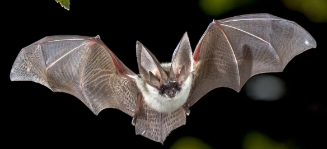Bat Genomes Unveil Pathways for Novel Medical Solutions
Tuesday, 4 February, 2025

Bats’ exceptional ability to tolerate coronaviruses and other pathogens without succumbing to illness stems from unique evolutionary adaptations in their immune systems. A landmark study published in Nature reveals that bats exhibit a higher density of genetic innovations in immune-related genes compared to other mammals, with the interferon-stimulated gene 15 (ISG15) playing a pivotal role. Specific bat variants of ISG15 were shown to inhibit SARS-CoV-2 replication by up to 90% in laboratory models, highlighting its potential as a therapeutic target.
These discoveries could catalyze the development of novel antiviral strategies and immune-regulatory therapies, offering a roadmap to mitigate the global burden of viral diseases. By deciphering the molecular basis of bats’ viral resilience, researchers aim to harness these mechanisms for human medical applications.
The study was conducted as part of the Bat1K consortium, an international initiative dedicated to sequencing and analyzing the genomes of all bat species. Key contributors from University College Dublin (UCD)—including Prof. Emma Teeling, Dr. Graham Hughes, and Dr. Zixia Huang—provided critical insights into the genomic and immunological analyses.
This research underscores the transformative potential of studying evolutionary adaptations in wildlife to address public health challenges. By bridging comparative genomics and clinical innovation, the Bat1K project exemplifies how biodiversity exploration can yield actionable solutions for combating emerging infectious diseases.
The full text is available at: (opens in a new window)https://www.nature.com/articles/s41586-024-08471-0